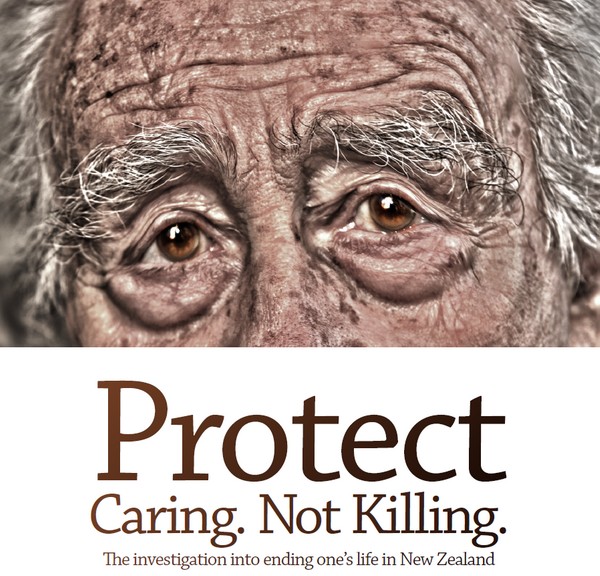Launch of protect.org.nz to Oppose Euthanasia
 Media Release 17 Sep 2015
Media Release 17 Sep 2015
Family First NZ has launched a website dedicated to helping families oppose euthanasia and assisted suicide, and to help them make a submission to the inquiry being carried out by Parliament’s Health Committee.
“Yet another push to legalise euthanasia and assisted suicide is currently underway in New Zealand. This resource will help families speak up to protect vulnerable lives, preserve human dignity, and show care and compassion,” says Bob McCoskrie, National Director.
“The committee needs to hear the voice of families in this investigation. It needs to know why families oppose the promotion of euthanasia, or any other form of suicide.”
A new website www.protect.org.nz has been launched today, and an accompanying 8-page pamphlet resource “PROTECT: Caring. Not Killing.” is also being made available to families across the country.
The Briefing Paper “A Call for Care, Not Killing” contains the key reasons why the current laws on suicide / assisted suicide / euthanasia should be maintained. The website and pamphlet also contains information on how to make a submission.
“This website and pamphlet resource will help strengthen the resolve of those wanting to oppose euthanasia, and equip them to speak up and make a submission to the inquiry,” says Mr McCoskrie.
“To allow assisted suicide would place large numbers of vulnerable people at risk – in particular those who are depressed, elderly, sick, disabled, those experiencing chronic illness, limited access to good medical care, and those who feel themselves to be under emotional or financial pressure to request an early death because they don’t want to be a burden. This is not ‘autonomy’ or ‘choice’ or ‘dignified’.”
“Voluntary euthanasia has the allure of being an enlightened and compassionate response to the plight of the suffering, but its practical operation is fraught with risks and there are slippery slopes that are indeed very slippery. Perhaps the most ominous change is one that cannot be proved. There will be an irreversible alteration to the way society and medical professionals view the demise of the elderly, the disabled, the incurably afflicted and the terminally ill. Death will be planned, coordinated and state-sanctioned in a manner hitherto unknown,” says Mr McCoskrie.
“We should increase care, support, and funding for the best palliative care regime in the world – but we should not allow euthanasia and assisted suicide.”
ENDS






